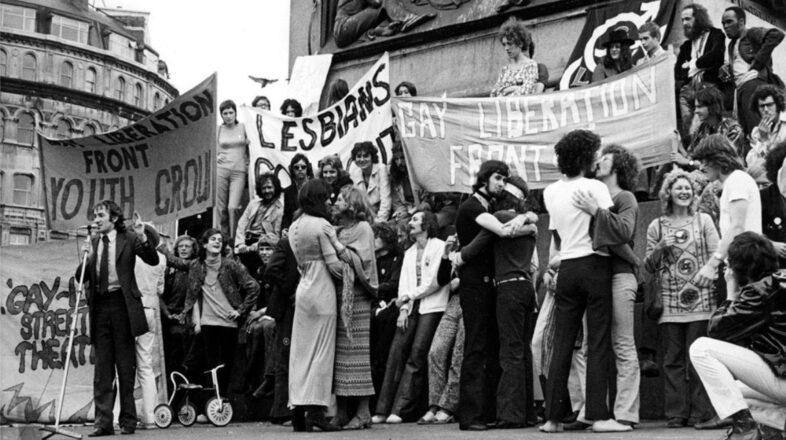
50 years of Pride: what have we learnt?
Read article
June 2022 has marked a landmark moment for Pride’s UK history as it enters its 50th year since its inception as the UK Gay Pride Rally taking place in London in 1972 (pictured above). A march that now centres on the LGBTQIA+ community and its allies standing up for equal human rights and showing up proud of their identity.
And what better way to spend this month than learning how we can practise healthy allyship to the LGBTQIA+ community near and far then through understanding the origins of its rich history right through to the changes and challenges 0f present day. This year, we wanted to make sure we practised before we preach – to learn about why this community now more than ever needs the full support of the public behind the inequalities that they are fighting against today.
Our team has spent their time consuming and sharing the content that has provoked thought and perspective on the LGBTQIA+ community and the protest for equality that is Pride.
Niall McMahon shares a few of his own insights where he’s seen progress within entertainment and media in representation and the importance this has on those who are commonly marginalised and whose stories are often kept out of the public eye.
Starting with the latest film in the Marvel Cinematic Universe which features a character from the comics, America Chavez. As well as bringing Latinx representation to the MCU, her character in the comics in a lesbian. In the film, her character (played by Xochitl Gomez), can be seen wearing a Pride pin on her denim jacket. The film made headlines when it was banned in China, Saudi Arabia, Kuwait and Qatar. The ban was not actually directly related to the character of America Chavez, but instead a 12-second clip showing her having two mothers. Disney has refused to cut the scene.
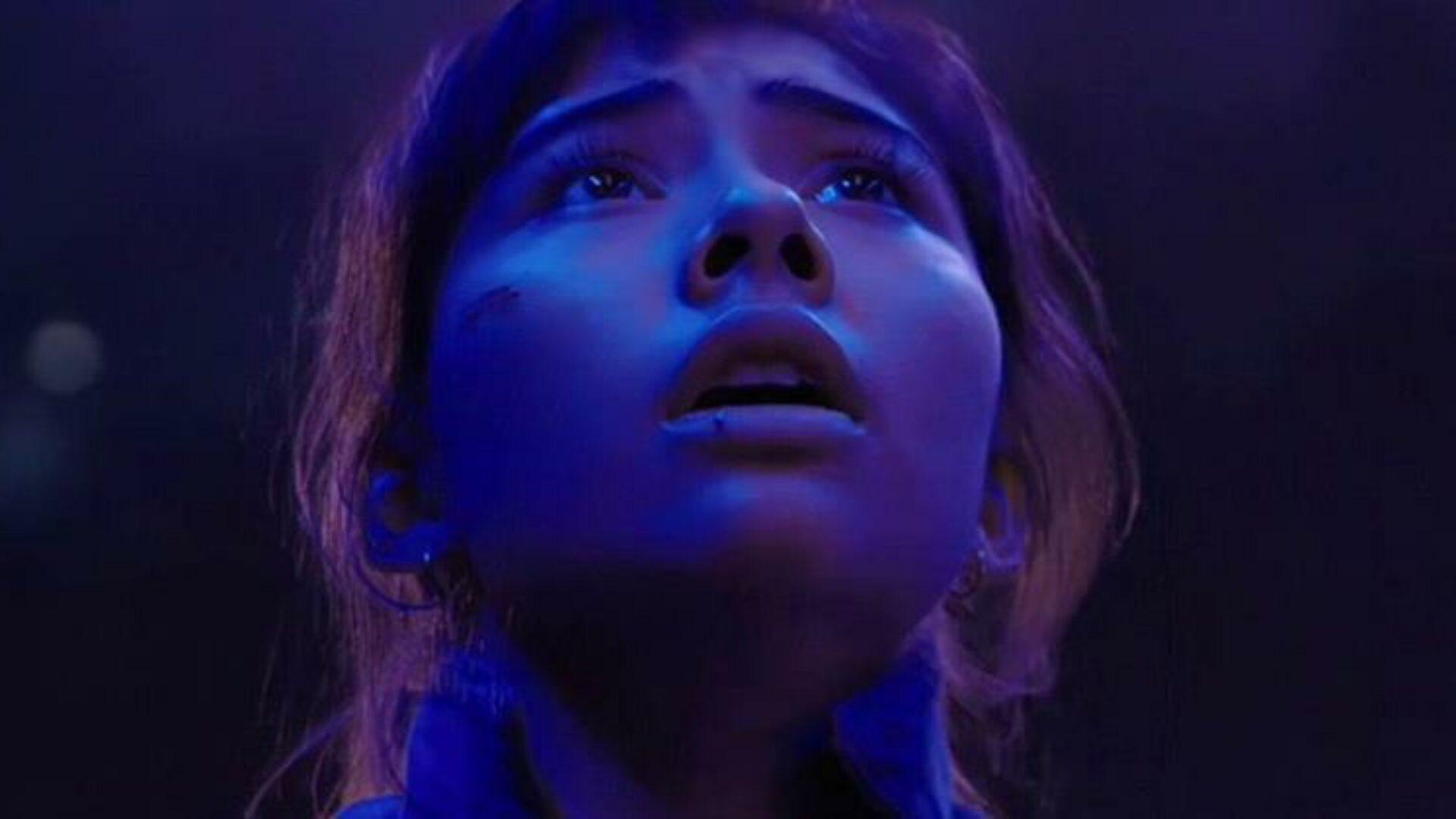

I think it's very important that characters representing different races, cultures and sexualities are included in cinema; especially in highly popular films such as the MCU franchise. Young queer people being able to see someone they can relate to alongside their favourite superheroes can really help with confidence, acceptance or even someone coming out. In countries where being LGBTQIA+ is illegal and even dangerous (such as the ones banning the film), it is even more important for these people to see themselves represented.
Niall McMahon
Niall also shares insight into his personal experience and one that impacts many bisexual people within the community – bisexual erasure.
The number of people identifying as bisexual has increased the last few years, yet bisexuality continues to be played down, ignored, and essentially erased by mainstream culture. Bisexual erasure is when the existence or legitimacy of bisexuality (in general or in regard to an individual specifically) is questioned or denied outright.
This is a common problem that still can have a huge impact in recent times – according to Stonewall’s LGBT in Britain Bi report in 2020, 76 per cent of gay people were out to all their friends compared to 36 per cent of bisexual people, and 63 per cent of gay/lesbian people were out to all their family members, compared to just 20 per cent of bisexual people. What’s more alarming is that the report also shares that 31 per cent of bisexual people had experienced a hate incident. Of those who’d experienced it, 75 per cent did not report it out of fear that the police would not take their case seriously.
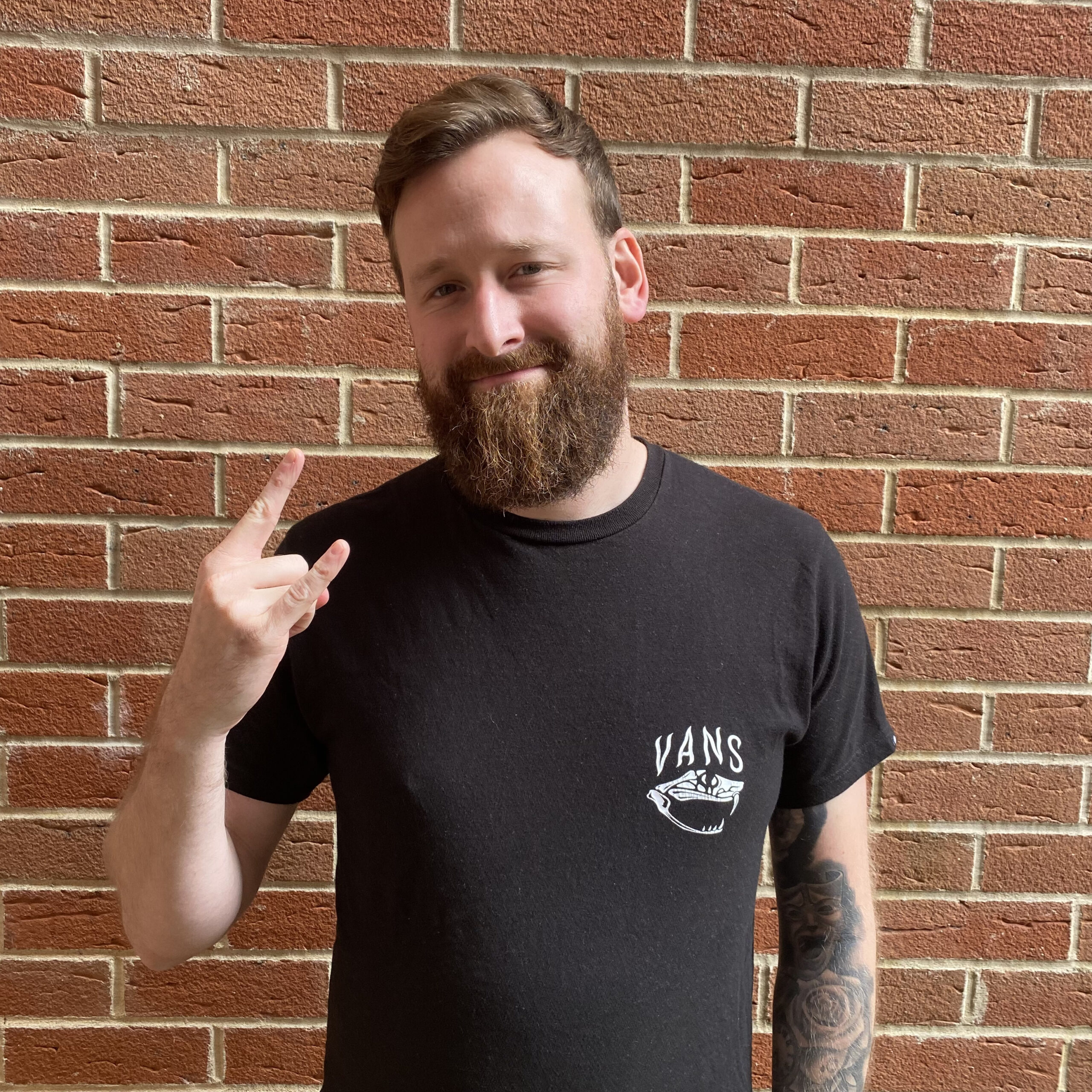

As someone who identifies as bisexual myself, this is something I have experienced personally. Whilst I see how labels can help people understand others, at times I would prefer not to label my sexuality as there are many misconceptions that people can have around bisexuality in particular. These include suggesting someone is using bisexuality as a cover for actually being homosexual, being greedy, being confused, going through a phase, etc. If bisexual erasure is itself erased, the isolation that many bisexual people experience can be reduced, lowering rates of mental health issues like depression. So I think it's important for people to understand the impact it has and to avoid making such assumptions.
Niall McMahon
Silvia shared a documentary called “The Death and Life of Marsha P. Johnson” that taught her much more about the past challenges that still exist in current times around Pride and the LGBTQIA+ community.
Marsha P. Johnson found joy as a self-made drag queen of Christopher Street, infamous for her unique design and costume creation. Throughout her discovery phase, she was referred to as Malcolm, and Black Marsha before settling on Marsha P. Johnson. The “P” stands for “Pay It No Mind.” – this response was intended to be a rhetorical answer to the question many had on their minds as to whether she was male or female. Johnson quickly became a prominent fixture in the LGBTQIA+ community serving as a “drag mother” helping homeless and struggling LGBTQIA+ youth.
The documentary “The Death and Life of Marsha P. Johnson” investigates the death, while celebrating the legacy, of LGBTQIA+ rights movement pioneer and transgender activist Marsha P. Johnson – following the latest attempt at reopening their case after the cause of death initially being classified as “suicide” in the 90s.
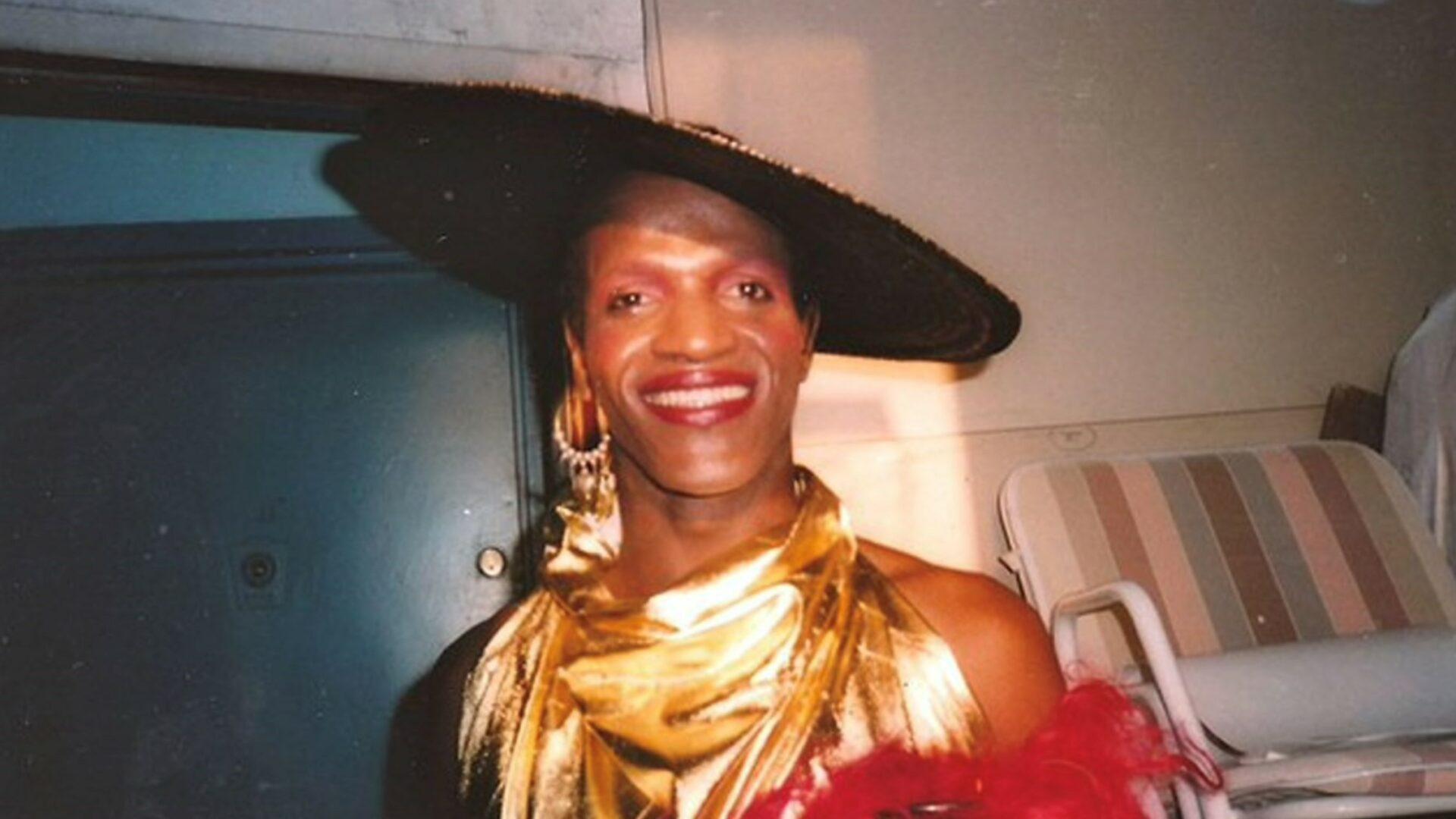


Despite the amount of new content available, I have recently decided to step back and learn about an older but still incredibly relevant event. I realised that despite knowing about Marsha, I didn't know her story or how it influenced the current Pride movement. I recommend this to anyone learning about the origins of an issue and an injustice that is decades old, but still prevailing these days.
Silvia Scifo
Billy Salter was surprised to read about an act of defiance by a footballer against the LGBTQIA+ community and Pride due to their religion. He felt by sharing this, it would increase awareness around the various challenges that face this community even today in the pursuit of equal rights.
The article centred on a professional football player, Idrisa Gueye who plays for one of the biggest teams in the world and the biggest team in France supposedly refusing to wear a football shirt because it had rainbow numbers on it. He did this because of his religious beliefs.
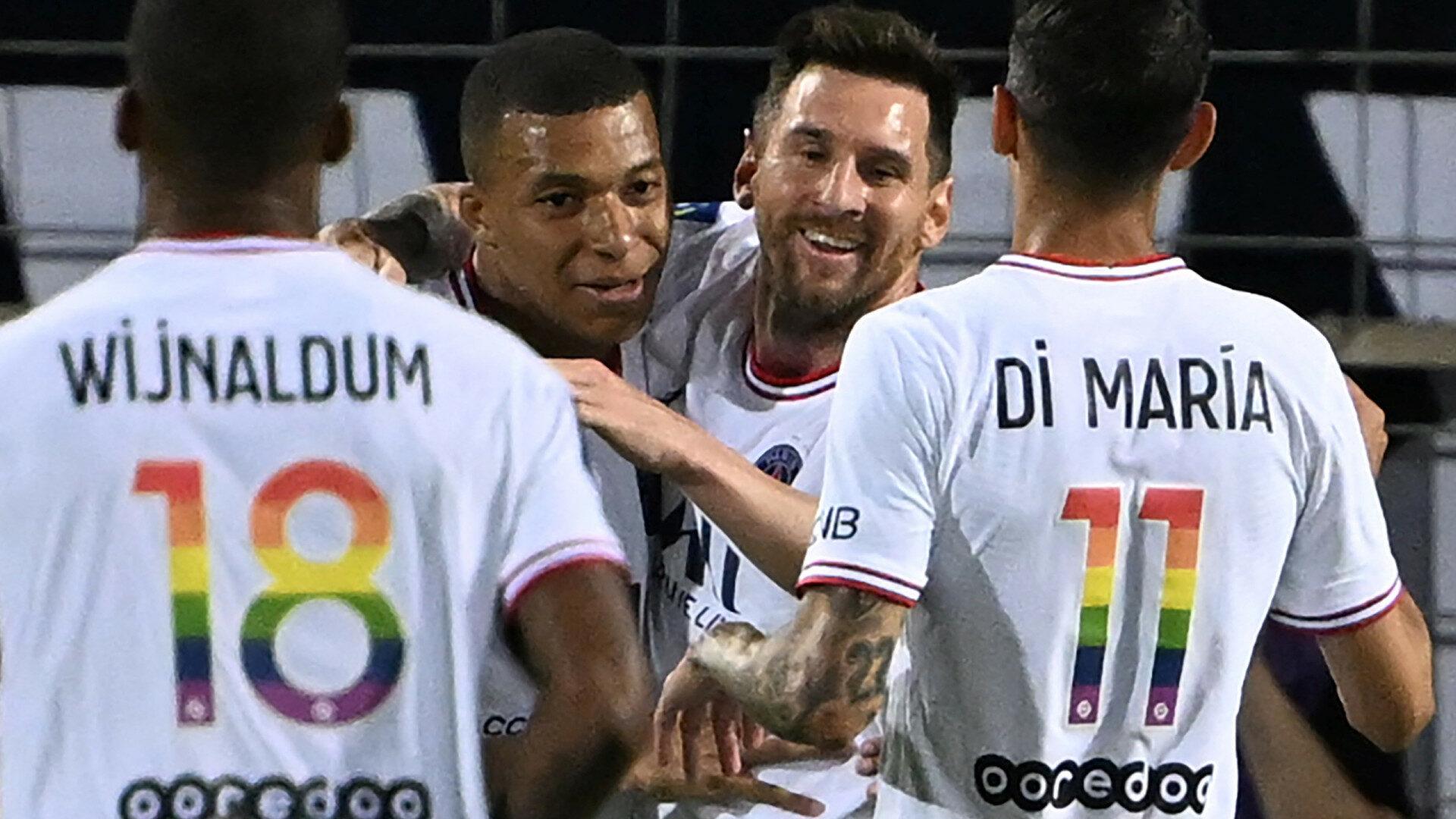
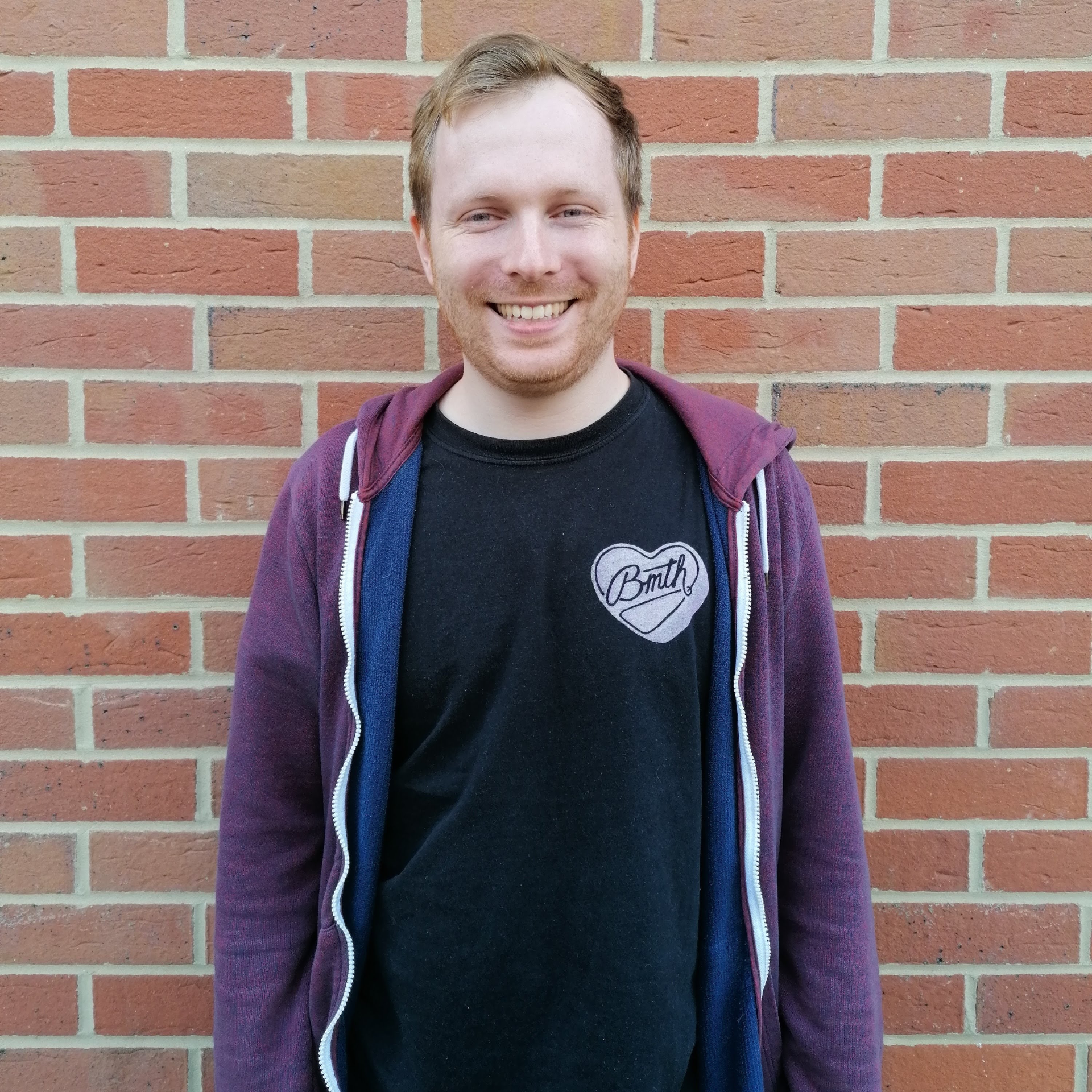

This campaign shows the willingness of football and most people to raise awareness of the need for equal rights for the LGBTQIA+ community but it also shows that religion is still a big blocker for this. Until I saw this article, people like me may not be aware of how many people still do not believe in equal rights for the LGBTQIA+ community because of their religion.
Billy Salter
Christina Christou shares a romantic comedy series she’s been enjoying that shows first love stories that resonate with all of us as human beings.
Heartstopper is a British coming-of-age romantic comedy on Netflix, adapted from the webcomic and graphic novel “Heartstopper”. Teens Charlie and Nick discover their unlikely friendship might be something more as they navigate school and young love in this coming-of-age series. Overall, an eye watering and wholesome story of young love.

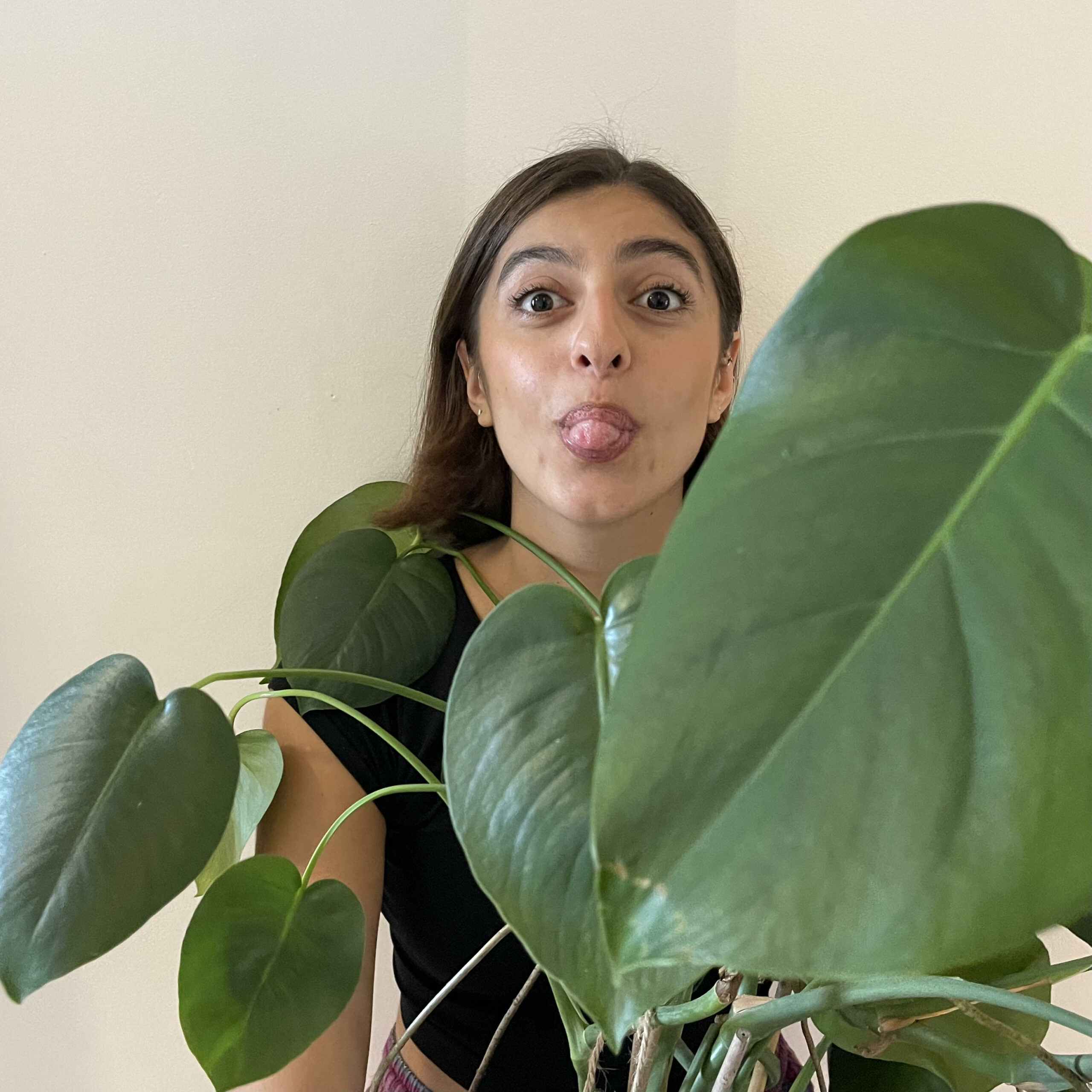

I think it beautifully and honestly represents the depiction of young love with all its awkwardness and comedic values in tow (brought to life by a great cast) and teaches us all that those funny first love stories are not unique to how you identify, but ring a bell of truth to all who watch. Worth a watch if you want to sincerely cry with joy and happiness at every episode!
Christina Christou
Laura Toy shares a book that opened her eyes up to intersectionality and those communities that face a multitude of adversities to be their true self.
“All Boys Aren’t Blue” is a series of personal essays, prominent journalist and LGBTQIA+ activist George M. Johnson explores their childhood, adolescence, and college years in New Jersey and Virginia. The young-adult memoir explores the trials and triumphs faced by Black queer boys and more broadly queer people of colour. All Boys Aren’t Blue covers topics such as gender identity, toxic masculinity, brotherhood, family, structural marginalisation, consent and Black joy. It further instils why Pride is more than a parade – it’s important that it’s a springboard for us to support and champion every individual to grow up being able to discover and be who they are.
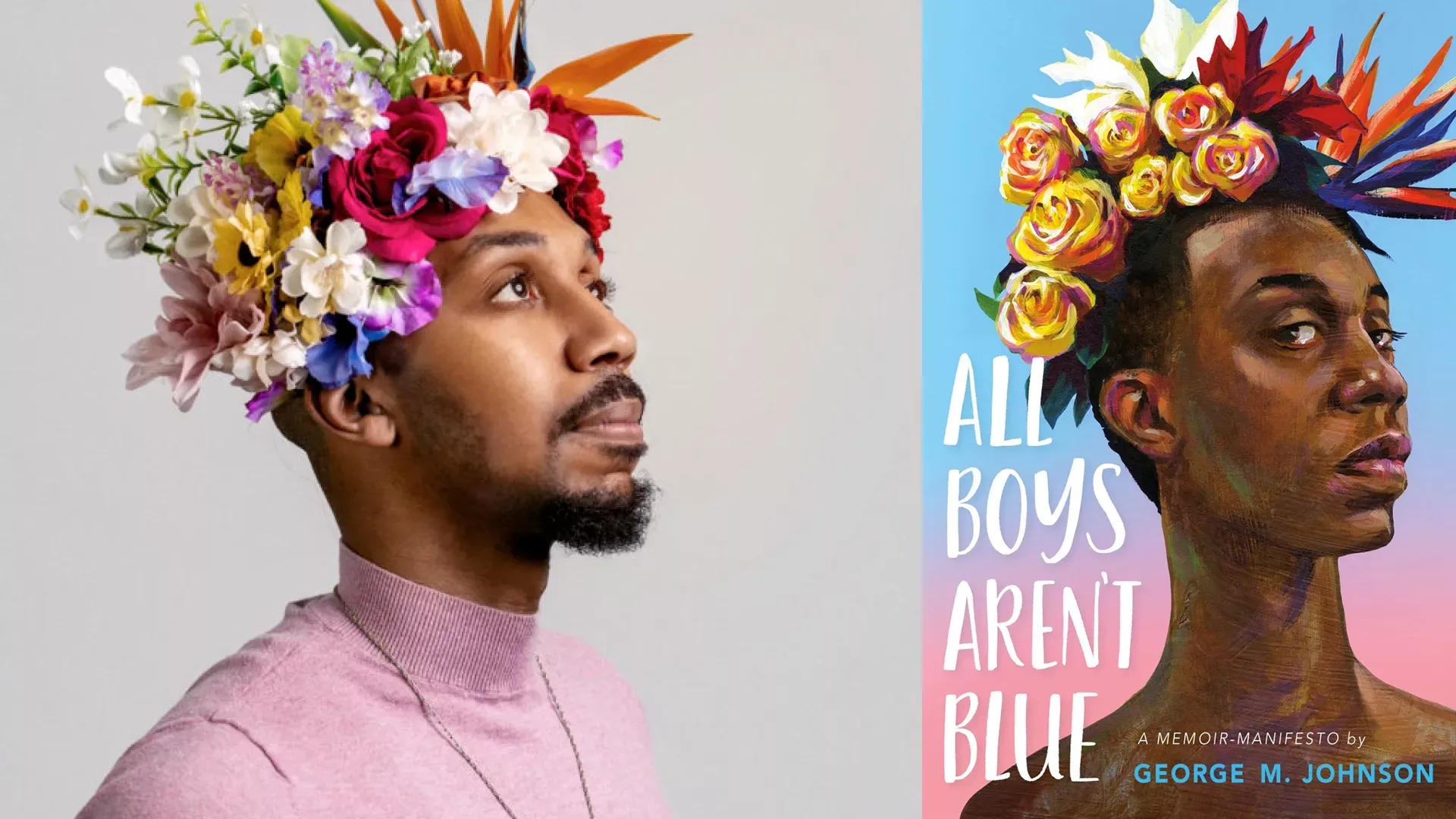
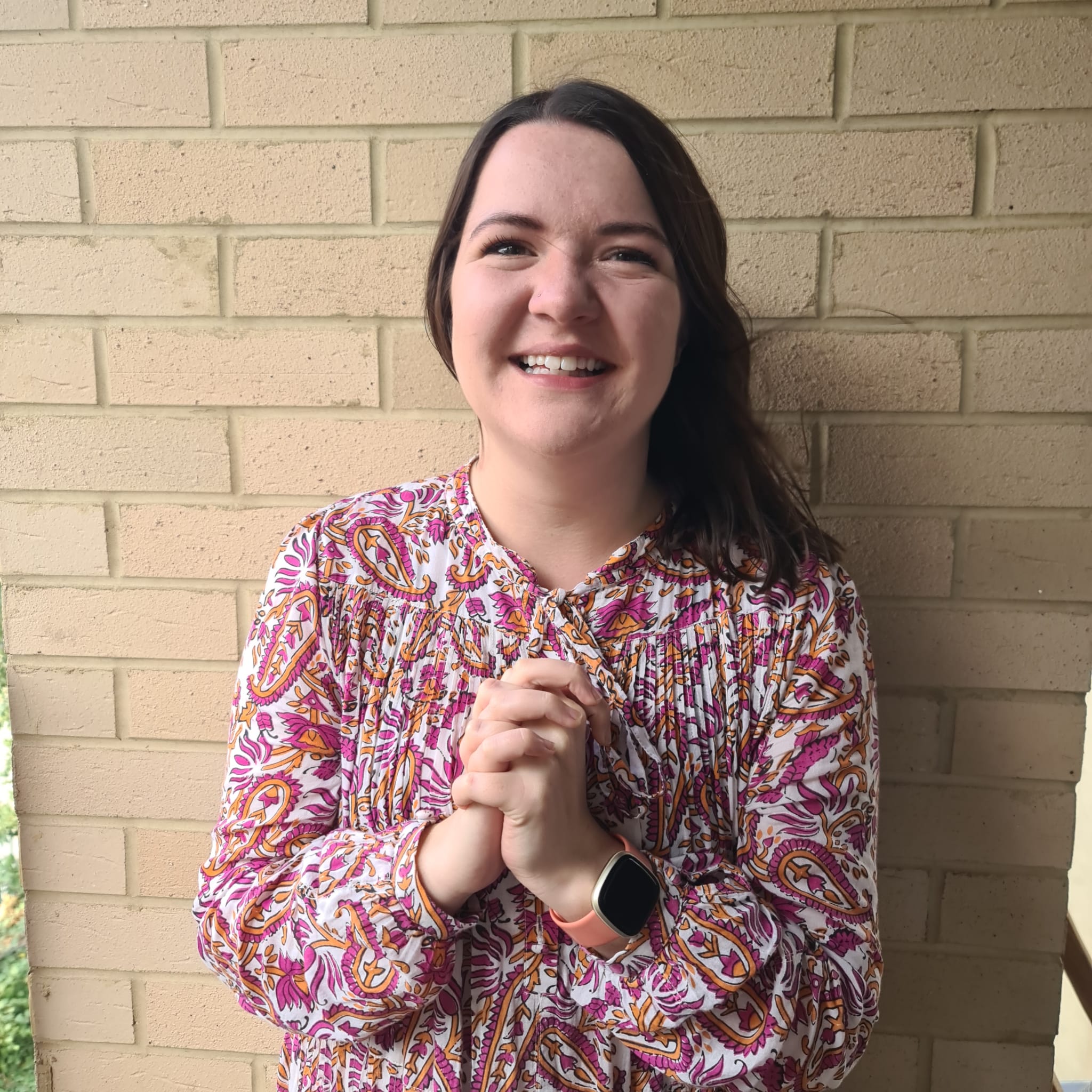

It really opened my eyes to the struggle and mental turmoil many can face within the system we live in to be their true authentic selves. And with it comes a whole host of challenges around intersectionality whereby discrimination of various forms can overlap to further marginalise individuals. It enabled me to understand the importance of Pride and the responsibility upon us all to step up and show up as allies to everyone within the community. I’d recommend every individual read this book to learn more about the human experience(s) beyond their own.
Laura Toy
Laura Wrightson wanted to further understand the statistics on perceptions and attitudes of LGBTQIA+ community in the UK having reflected on it marking 50 years since the first rally. Stonewall released a report this year called The Take Pride Report: public sentiment towards lesbian, gay, bi and trans people in the UK summarising that the research indicates that “the United Kingdom is a country that is proud to be inclusive; one where its people are increasingly embracing their LGBTQ[IA]+ neighbours, colleagues, family and friends. However, with intolerant, minority viewpoints being presented as fact in our media and in our politics, it’s never been more important to show up to protect our rights.”
The report shines a light on the changing perceptions of the public but highlights that there is still plenty of work to do in the public’s attitude and feelings towards different identities within the LGBTQIA+ community. Also, Stonewall are urging the Prime Minister of Great Britain and Northern Ireland Boris Johnson, the First Minister of Scotland Nicola Sturgeon and the First Minister of Wales Mark Drakeford to show leadership to progress rights for LGBTQIA+ people. You can sign the pledge and put your name against it by visiting their release page.
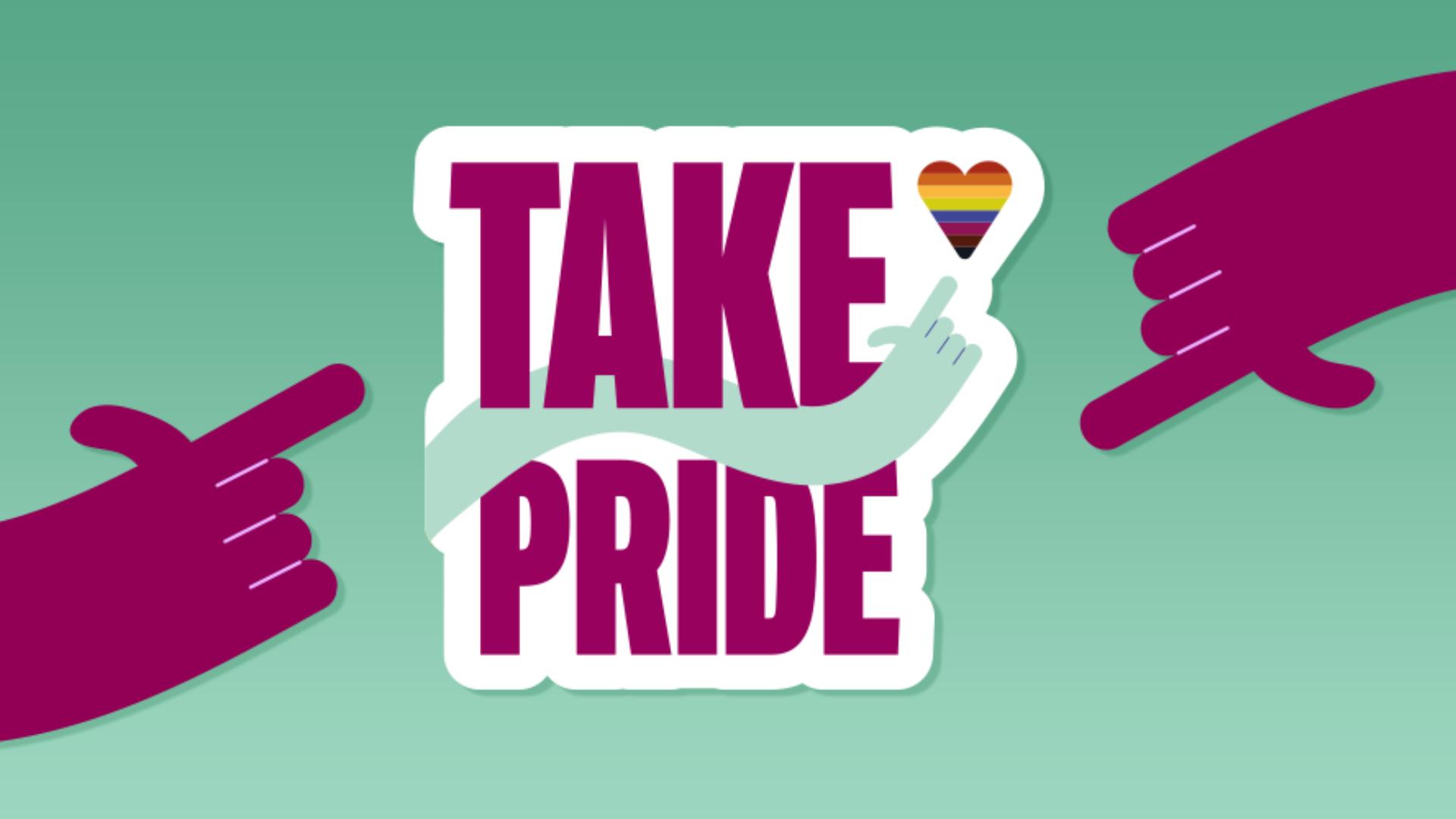
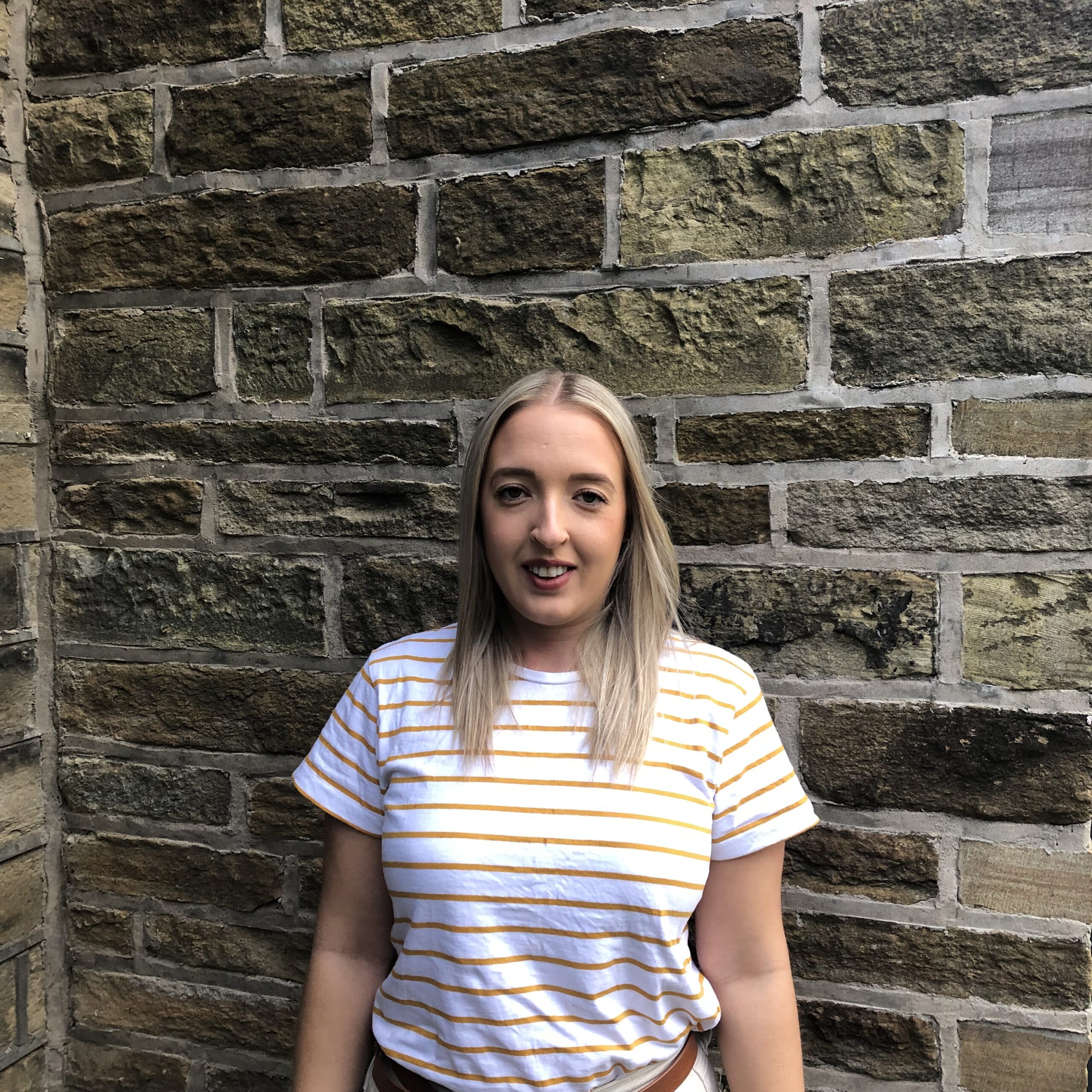

I found the report really interesting to see a snapshot of the changing attitudes of people within the UK. Whilst there is a lot of positive data in there it's still quite hard to read that there are still so many negative attitudes towards the LGBTQ community which is being largely fuelled by media and the government. There's still a lot of work for everyone to do.
Laura Wrightson
Laura also found insightful interview content online via The Drum that discussed corporate involvement within Pride Month. The Drum caught up with Pink News CEO Benjamin Cohen to discuss why the LGBTQIA+ community doesn’t exist to be capitalised on by brands that are in for a quick buck.
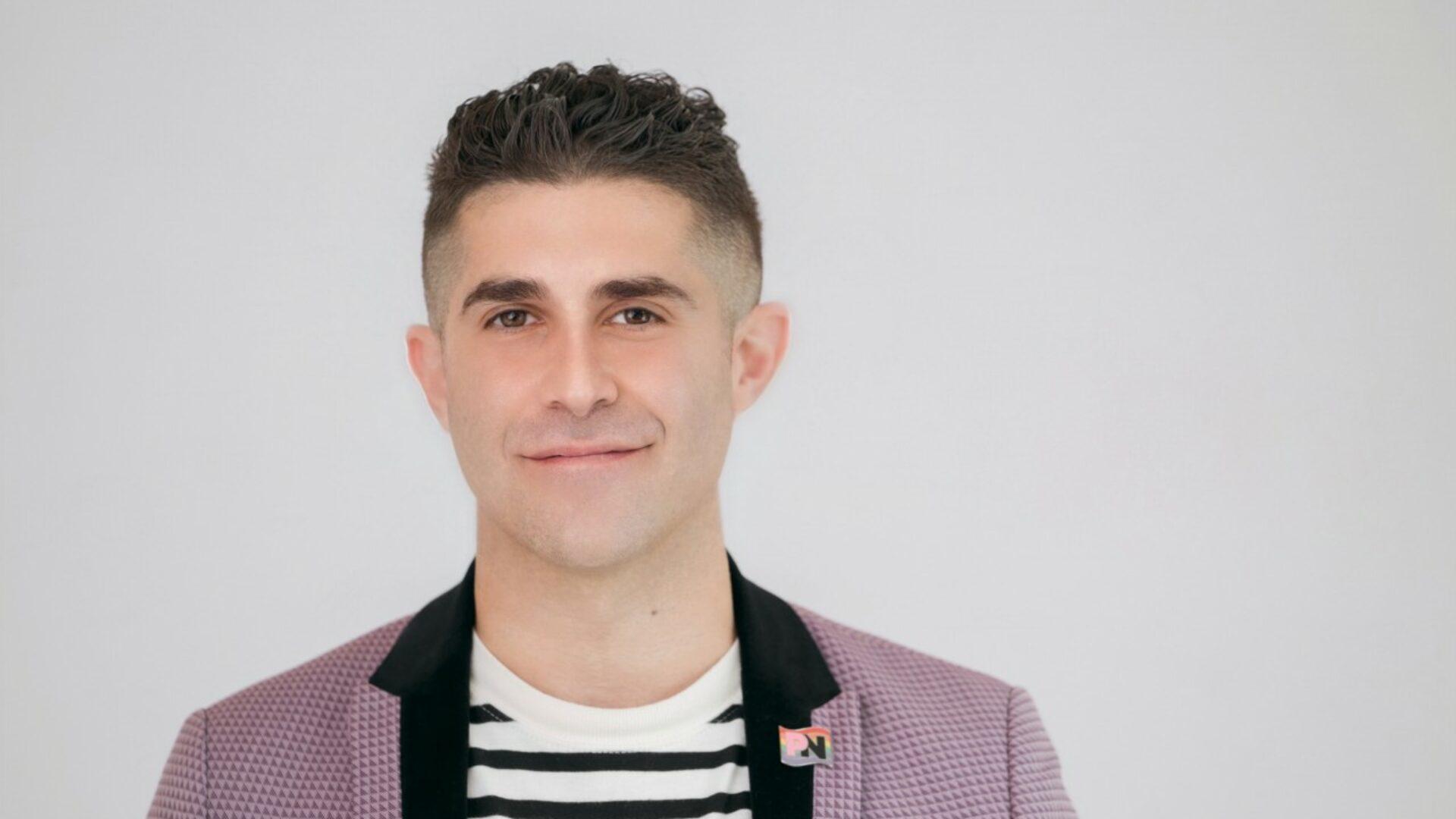

I think it's important for others in the industry to read because it really highlights how just jumping on the back of Pride month whilst it's on/to make it look like you're supporting it is actually more detrimental to your organisation. There's useful tips to how brands/companies can be more considerate and really help make a difference.
Laura Wrightson
Here’s a list of the resources we’ve shared throughout the article to read further:
Doctor Strange and the Multiverse of Madness – watch now on Disney+
The Death and Life of Marsha P. Johnson
BBC article – “Idrissa Gueye refuses to wear PSG shirt featuring rainbow symbol”
Heartstopper – watch now on Netflix
All Boys Aren’t Blue – George M. Johnson
Stonewall The Take Pride Report: public sentiment towards lesbian, gay, bi and trans people in the UK
The Drum – ‘We know when brands just want to make money’: Pink News CEO issues Pride warning
And for further resources and support, you can visit:
Stonewall – NFP standing for lesbian, gay, bi, trans, queer, questioning and ace (LGBTQ+) people everywhere
Mermaids – a charity supporting transgender, nonbinary and gender-diverse children, young people and their families
MindOut – the mental health charity for LGBTQ+ communities

50 years of Pride: what have we learnt?
Read article